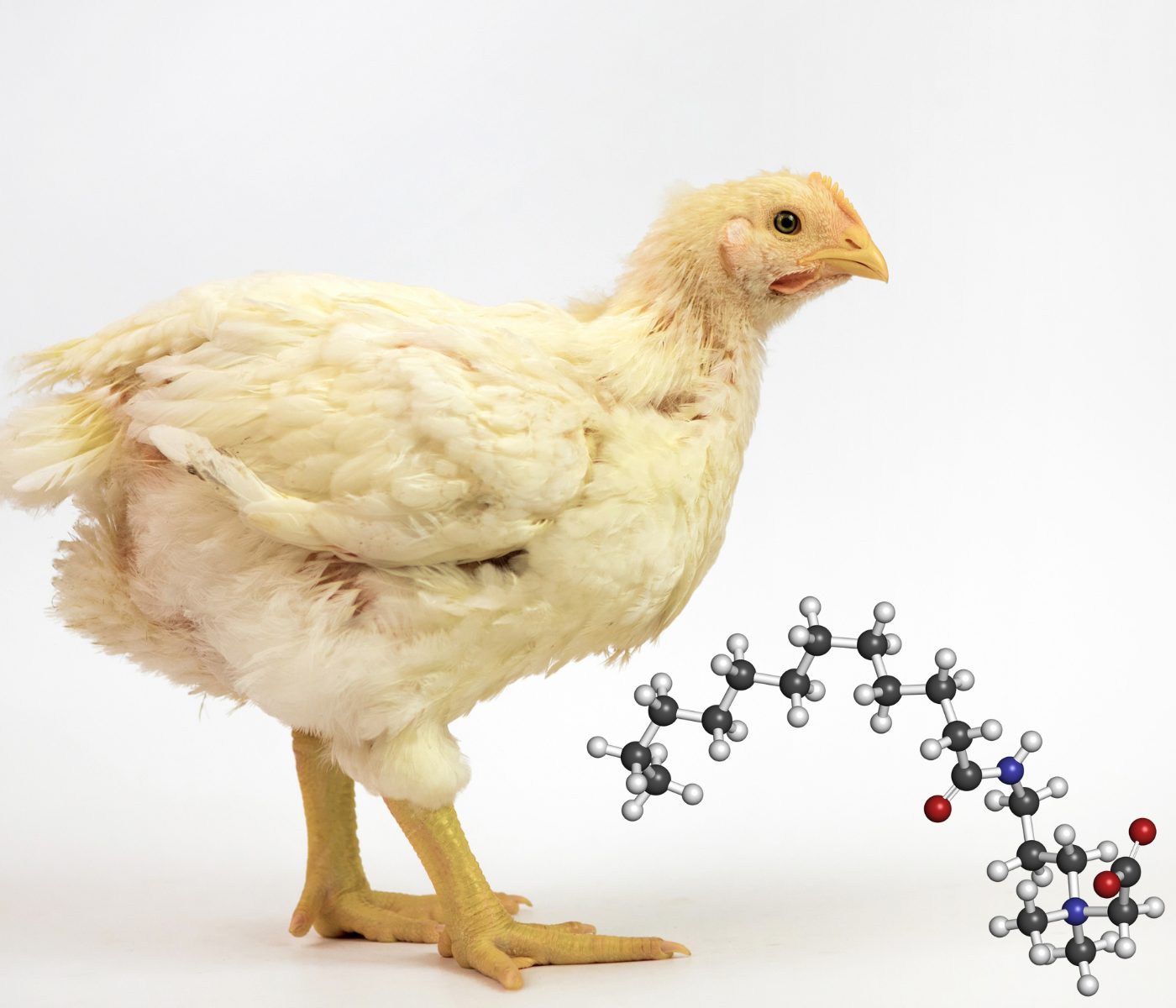 01 Jun 2022
01 Jun 2022
Betaine is a trimethylated derivative found in living organisms. It acts as an osmolyte to help maintain cellular water balance and as a methyl donor through methionine recycling. Increased water retention due to its osmotic effect increases cell volume, thus increasing:
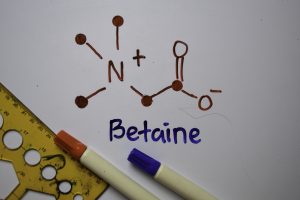
Its osmotic activity allows cellular adaptations to adverse osmotic environments observed in hot and humid climates. Vertebrates, including poultry, have a limited ability to synthesize betaine.
In plants, it is synthesized and accumulated for protection against stress caused by salt levels or temperature.
In poultry nutrition, it can contribute in improving carcass performance and composition, reducing bed moisture, and helping to overcome coccidiosis and stress.
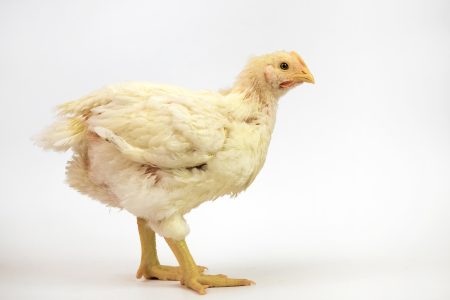
Thermal stress
Thermal stress consists of exposing birds to temperatures which are higher than optimal. This causes numerous health problems, such as:
Heat stress represents one of the most important factors with negative effects on poultry production. It also has negative effects on carcass properties, which results in lower meat quality.
The use of feed additives that have positive effects to help resist thermal stress represent the most significant solution for this problem.
Betaine, has other beneficial effects on mild heat stress. Most studies have shown slight positive effects; however, systematic results are scarce. Since betaine dosage and product possibilities are almost limitless, more research is still required on this subject.
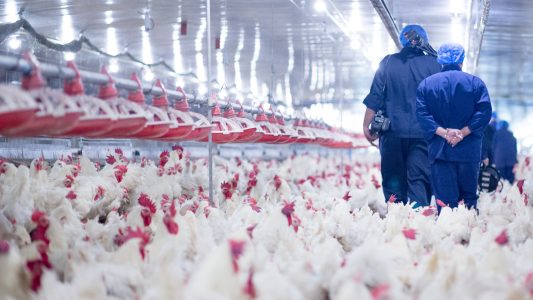
Metabolism and functions
Betaine is absorbed in the jejunum of chickens in its purified form. Its absorption is faster than that of choline or methionine. The latter are associated with plasma lipoproteins, while betaine remains free in plasma. Choline must be transported from the cytosol to the mitochondria, where it is oxidized to betaine.
However, the efficacy of choline to betaine conversion is reduced by ionophore anticoccidials commonly used in poultry farming.
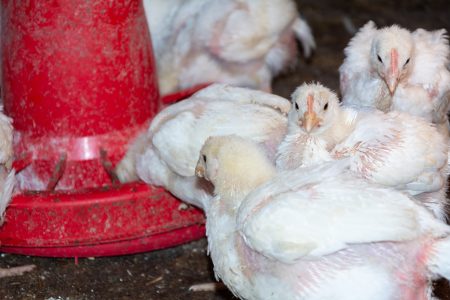
In chickens, betaine can donate a methyl group (CH3) to homocysteine for methionine synthesis three times more efficiently than choline. However, an adequate concentration of cysteine is necessary in order to achieve the beneficial effects of betaine supplementation.
An inadequate concentration of cysteine in the diet can affect betaine activity by reducing homocysteine concentrations for methionine formation.
The accumulation of bataine causes an increase in the water retention capacity of intestinal cells and promotes changes in the structure of the intestinal epithelium that increase intestinal surface. It also stimulates cell proliferation in intestinal tissue, especially in the mucous membrane. Increased epithelium of the intestinal wall can increase the nutrient absorption surface.
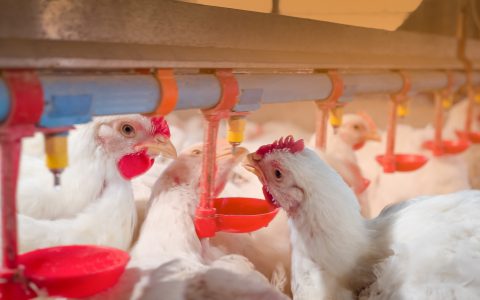
⇒ Reducing intestinal pH and intestinal villus height with betaine (hydrochloride) supplementation in the stomach may improve the digestibility of methionine and other nutrients.
Improved performance
The influence of betaine supplementation on broiler performance depends mainly on the concentrations of other labile methyl groups in the diet and the stress that the bird has at that time. Betaine supplementation did not influence the performance of birds in diets with adequate or severe methionine deficiency.
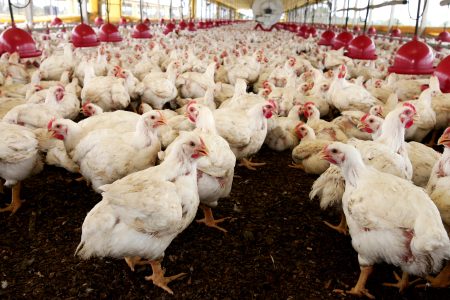
However, an improvement has been reported in:
The results of a recent study indicate a significant improvement in feed efficiency in broilers which were fed betaine (800mg/kg) or suboptimal methionine concentrations compared to those fed without its inclusion, regardless of amino acid concentration.
Dose
In general, the recommended concentration of betaine in feed is 500-750g/tonne.
→ Its use can be reduced to a higher concentration (>800g/tonne).
Conclusions
![]() The osmotic properties of betaine are useful in helping to maintain the integrity of the intestinal mucosa under heat stress and digestive disorders.
The osmotic properties of betaine are useful in helping to maintain the integrity of the intestinal mucosa under heat stress and digestive disorders.
![]() As a methyl donor, it participates in the synthesis of methionine.
As a methyl donor, it participates in the synthesis of methionine.
![]() It has also been reported to improve breast meat yield in broilers.
It has also been reported to improve breast meat yield in broilers.
Source: ResearchGate. Application of betaine as feed additives in poultry nutrition – a review
Subscribe now to the technical magazine of animal nutrition
AUTHORS

Nutritional Interventions to Improve Fertility in Male Broiler Breeders
Edgar Oviedo
The Use of Organic Acids in Poultry: A Natural Path to Health and Productivity
M. Naeem
Synergistic Benefits of Prebiotics and Probiotics in Poultry, Swine, and Cattle
Gustavo Adolfo Quintana-Ospina
Hybrid Rye Potential in Laying Hen Feed Rations
Gwendolyn Jones
A day in the life of phosphorus in pigs: Part I
Rafael Duran Giménez-Rico
Use of enzymes in diets for ruminants
Braulio de la Calle Campos
Minerals and Hoof Health in the Pregnant Sow
Juan Gabriel Espino
Impact of Oxidized Fats on Swine Reproduction and Offspring
Maria Alejandra Perez Alvarado